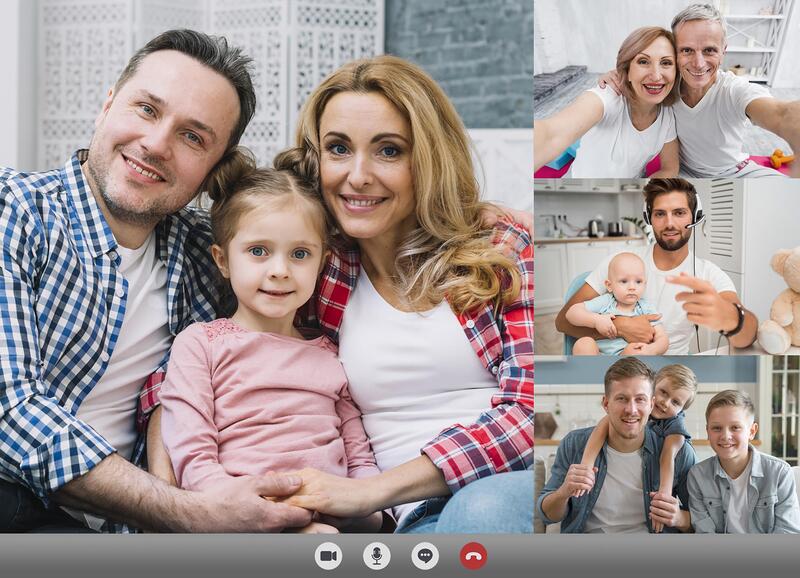Готовый план урока английского языка на тему Family and Relationship, который подойдет как для урока в школе, так и для онлайн-урока.
Тема My Family and Relationship всегда включена в программу и обсуждается на каждом уровне. Надоело рисовать и обсуждать семейное древо, использовать банальные mother, father? Если не знаете, о чем говорить с учениками более высокого уровня, предлагаем план урока для студентов уровней Pre-Intermediate/Intermediate, в котором мы расширим словарный запас и обсудим семейные отношения.
- Enlarge the vocabulary on the topic Relations in the Family.
- Discuss your childhood and relations with the members of your family.
План урока
1. Warm-up
Давайте начнем урок с юмора. Прочитайте шутки о семейной жизни и родительстве — ведь даже о конфликтах или проблемах в семье можно говорить с юмором.
How do you understand the phrase “a Pinterest family”? Is this life staged? Do they pose or show off? Does real life differ from perfect pictures on social networks?
Let’s start with reading some jokes.
My wife says she is no longer buying junk food for the family because, “Everyone just eats it.”
I asked my mom if I was adopted. She said, “Not yet, but we placed an ad.”
A little boy asked his father, “Daddy, how much does it cost to get married?” Father replied, “I don’t know, son, I’m still paying.”
Child’s experience: if a mother is laughing at the father’s jokes, it means they have guests.
Parenthood is a journey except it’s just travelling from room to room putting away the same toys all day long.
Do family members always get on with each other?
Вам могут быть интересны другие уроки английского языка:
2. Lead-in
Послушаем аудио и обсудим тенденции института брака.
Let’s listen to a podcast and discuss the tendency of an institution of marriage.
What does family mean to you? In a perfect world, all families should be happy, and everyone should get on well together. I know a lot of families that have many problems. Brothers and sisters who don’t like each other, parents who never talk to each other. I wonder why this is. How can you live so close to your family members and feel apart from them? There is a lot of talk in the news about the breakdown of family life. Divorce is rising everywhere in the world. This means single parents have less time to spend with their children, which creates problems. Maybe the stress of modern life puts too much pressure on families. It seems as though family life was better a generation or two ago. Is this true for families in your country?
- Is the rate of divorce in your country rising?
- Is the institution of marriage undergoing transformations?
- What is a tendency nowadays? (To get married or not? At what age?)
- Do you know couples with an age gap between partners? Are they happy?
Give synonyms to these words using the ones from the podcast:
- to have good relationship —
- to be separate from —
- to break up, not to be married any more —
- one parent bringing up a child —
- difficult situation that makes you feel worried —
3. Vocabulary. Part 1 (Pre-Intermediate)
A. Соотнесем слова и объяснения.
Match the words with their descriptions:
| 1.age gap 2. siblings 3. niece 4. father-in-law 5. mother-in-law 6. nephew 7. in-laws 8. twins | A. the mother of your husband or wife B. the father of your husband or wife C. the parents of your husband or wife D. a sister or a brotherE. one of two children who are born to the same mother at the same timeF. an age difference between two people G. the son of your brother or sister H. the daughter of your brother or sister |
B. Соотнесем устойчивые фразы с объяснениями.
Match the phrases with the definitions.
- Children often look and act similar to their parents.
- Every child is a different kind of flower, and all together they make this world a beautiful garden.
- They are very important to you, and you are extremely fond of them.
- Somebody in a family who always gets into trouble.
Children are the flowers of life.
Like father, like son.
There is always a black sheep in the family.
apple of one’s eye
Источник фото: freepik.com
Explain them with your own words. Give examples of some situations using these phrases.
С. Перевод.
Translate these sentences.
- Этот мальчик очень умный и увлекается наукой. Его отец ученый. Яблоко от яблони.
- У них большая семья — пятеро детей, и они не против родить еще. Дети — цветы жизни.
- Все в этой семье стоматологи, но младший сын увлекается музыкой и не учится, прогуливает школу. Он позорит нашу семью.
- Они ей так гордятся, она многого достигла. Она свет их очей.
4. Vocabulary. Part 2 (Intermediate)
Прилагательные делают речь богаче и красивее. Расширим словарный запас и поговорим о чертах характера.
A. What positive and negative personality traits do you know?
Let’s sort them:
| positive | negative |
Friendly, independent, manipulative, reliable, selfish, sociable, tidy, honest, sensitive, jealous, moody, bossy, spoilt.
Match the words with the definitions:
_____ — children who are given everything they want.
_____ — people who think about themselves and not about other people.
_____ — people have common sense and are practical.
_____ — people who are friendly and enjoy being with other people.
_____ — people who are good at influencing other people to do what they want.
_____ — people who are happy one minute and sad the next and are often
bad-tempered.
_____ — people who like doing things on their own, without help.
_____ — people who like to give orders to other people.
_____ — people who show that they love or like others very much.
_____ — people who are the ones you can trust or depend on.
_____ — people who think that someone loves another person more than
them or want what other people have.
_____ — people who always tell the truth and frankly express their feelings.
_____ — a person who keeps things neat or clean.
B. Which negative prefix do you use with these adjectives? Put them in the correct column.
| un- | dis- | in-/im-/ir- |
Friendly, imaginative, kind, reliable, selfish, sociable, tidy, honest, organised, patient, responsible, sensitive.
C. Write an adjective to describe each person judging by what they’ve said.
- I hate waiting in queues. —
- You can depend on me. —
- His room is messy, and he is always late. —
- Their child is never happy with presents. You can’t surprise her at all. —
- Oh, that was an awesome film. I could not help crying. —
- Oh great! A party! I love being with my friends. —
- John, go and buy the food. Maria, tidy the room. —
- You count every cent; you are so reasonable in spending money. —
- How did this idea come to your mind? You are so creative! —
- Sorry, we are firing you, you have broken all the deadlines, and we are losing clients. —
D. Посмотрите на картинки, опишите, что только что произошло, и подберите подходящее прилагательное.
Look at these pictures and describe what is happening and what trait fits the picture.
(E.g. A bossy father is shouting at the kids who were lazy and have not done their homework or have not tidied their room.)
(E.g. A spoilt child, she is crying about the gadgets her parents took away from her.)
(E.g. A greedy jealous child, she has two presents but can’t choose which is better and does not want to share.)
(E.g. A person has just spilt milk on the floor. A child has not arranged the toys. Untidy/messy.)
(E.g. These kids have just had a fight. One of them is selfish, another is sensitive.)
Источник фото: freepik.com
Еще больше материалов для занятий английским языком:
5. Speaking
Давайте поговорим на тему отношений, используя вокабуляр урока.
Let’s talk about relationships in a family using vocabulary from the lesson.
- What do people mean when they say, “You can choose your friends, but you can’t choose your family”?
- In your opinion, what is the most important thing to make a happy family?
- What can cause arguments in a family?
- Which kind of family is popular now: a nuclear or an extended family?
- Is life getting more difficult if there is a teenager in a family? Why?
- Is generation gap an eternal problem?
- Is there any difference between older, middle, and younger kids? Who is more responsible, ambitious, competitive, jealous, or lazy?
Вам могут пригодиться и другие материалы по теме My Family:
6. Summary
Подведем итоги урока.
What can we do:
- Describe different character traits.
- Make negative forms of adjectives.
- Speak about relationships in a family.
Надеемся, вам понравился этот урок английского языка! Делитесь своими впечатлениями в комментариях.


























 Татьяна Тюменцева
Татьяна Тюменцева 
 Анастасия Юферева
Анастасия Юферева 
 Павел Усов
Павел Усов 
 Анна Тетерина
Анна Тетерина 
 Светлана Митина
Светлана Митина 
Спасибо за отличную подборку! Очень интересный материал👍🏻